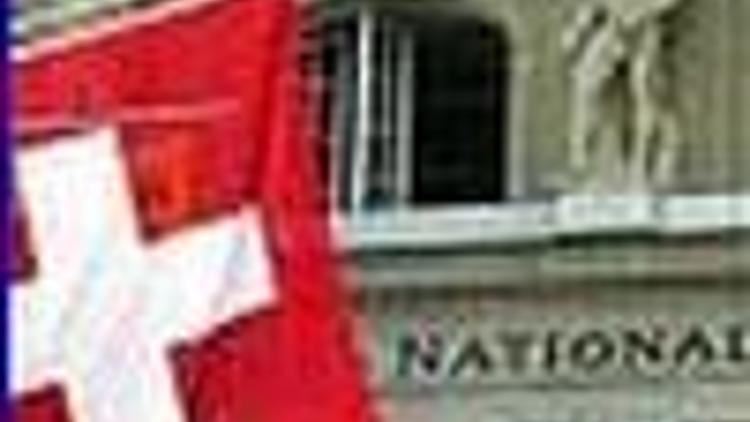SNB cuts rates by 50 bps, sees 2009 Swiss recession
Güncelleme Tarihi:

The Swiss National Bank slashed interest rates by half a percentage point on Thursday, its fourth cut in two months, as it warned that a sharply worsening global climate would tip Switzerland into recession next year.
The SNB said it had lowered its target band for the 3-month Swiss franc LIBOR to 0.00-1.00 percent from a previous 0.50-1.50 percent, aiming for the mid-point of the range or 0.50 percent.
The SNB began its first round of monetary easing in five years on Oct. 8 when it joined other big central banks in a coordinated cut, and then surprised markets with two more cuts. Thursday's move brings total cuts to 225 basis points.
In a Reuters poll, 26 of 39 economists had expected the SNB to lower rates on Thursday, with 21 forecasting a 50-basis-point move and five seeing a 25-basis-point reduction.
Economists said the new cut meant that the SNB was running out of ammunition to boost the economy as rates get close to zero, but the SNB said it could consider other measures.
The SNB forecast the Swiss economy will contract between 0.5 and 1 percent next year, while it revised down its inflation forecasts for 2009 and 2010 to 0.9 percent and 0.5 percent respectively from a previous 1.9 percent and 1.3 percent.
"With this action we are reducing to the extent possible the risk of an even more pronounced economic downturn," SNB Chairman Jean-Pierre Roth told a news conference.
The Swiss economy stagnated in the third quarter, failing to grow for the first time in four years. However, it still outperformed the euro zone, which is already contracting.
The Swiss franc weakened after the cut. The dollar was up at 1.1920 francs compared with 1.1905 francs just before the rate decision, and the euro rose to 1.5640 francs from 1.5625 francs.
"The SNB wants to send out a clear message before Christmas. They want to appear extremely proactive as they've been so far," said Bank of America economist Gilles Moec.
"What's interesting in the statement is that they said they'll take further action if necessary. They're probably opening the door to more unorthodox methods like quantitative easing if necessary."
"NOT THE 1930S"
The SNB said the open Swiss economy would be heavily affected by a sharp deterioration of the global economic environment -- particularly in the United States and Europe, and the worsening situation on international financial markets.
But SNB board member Thomas Jordan said central bank and government action should prevent another Great Depression.
"Despite the historic disruptions in the financial markets, this is not the 1930s," he said. "The main differences to back then being the decisive way in which monetary and fiscal policy reacted and the far-reaching government intervention."
The SNB said it would continue to watch closely developments in the global economy and financial markets, including foreign exchange markets, and implement further measures if needed.
Jordan said the SNB is not limited to the short-term repo rate and could also extend maturities of transactions or intervene in markets other than the money market.
After the rate announcement, the SNB offered 1-week, 3-month and 12-month funds at 0.05 percent, indicating that the SNB has almost run out of room for conventional monetary easing.
Unconventional measures to ease monetary conditions have become an issue for central banks worldwide as interest rates approach zero in a number of countries.
The United States already engages in a form of quantitative easing -- alternative measures to increase the supply and circulation of money when conventional policy loses impact as interest rates approach zero -- by buying mortgage-backed securities issued by Fannie Mae and Freddie Mac.
Approaches the SNB might try include trying to bring longer-term rates lower by steering market expectations, buying Swiss franc bonds to lower borrowing costs or trying to weaken the franc either by verbal or physical intervention, economists say.

